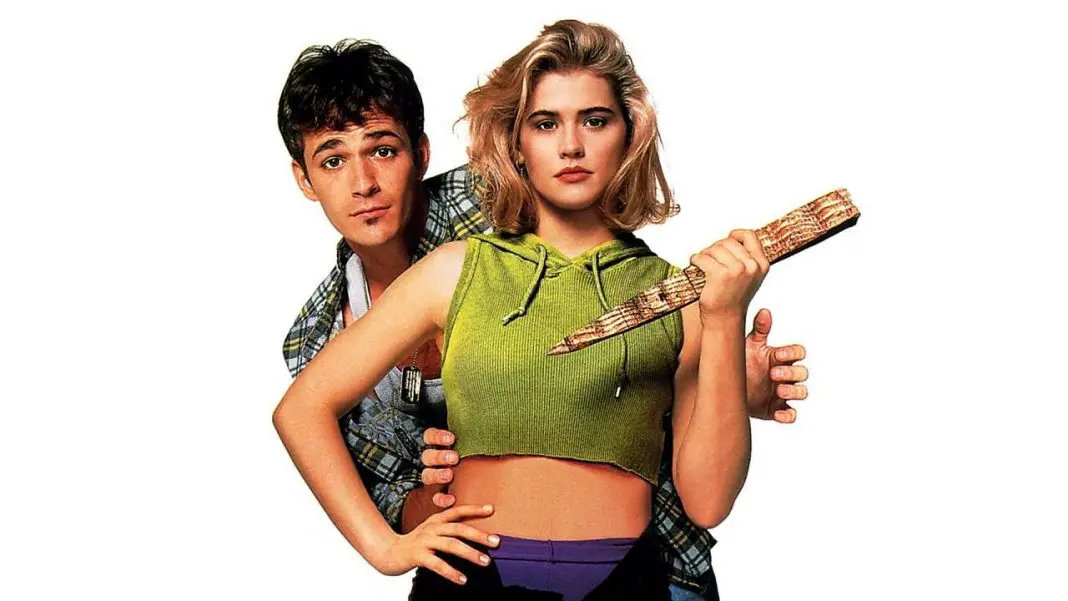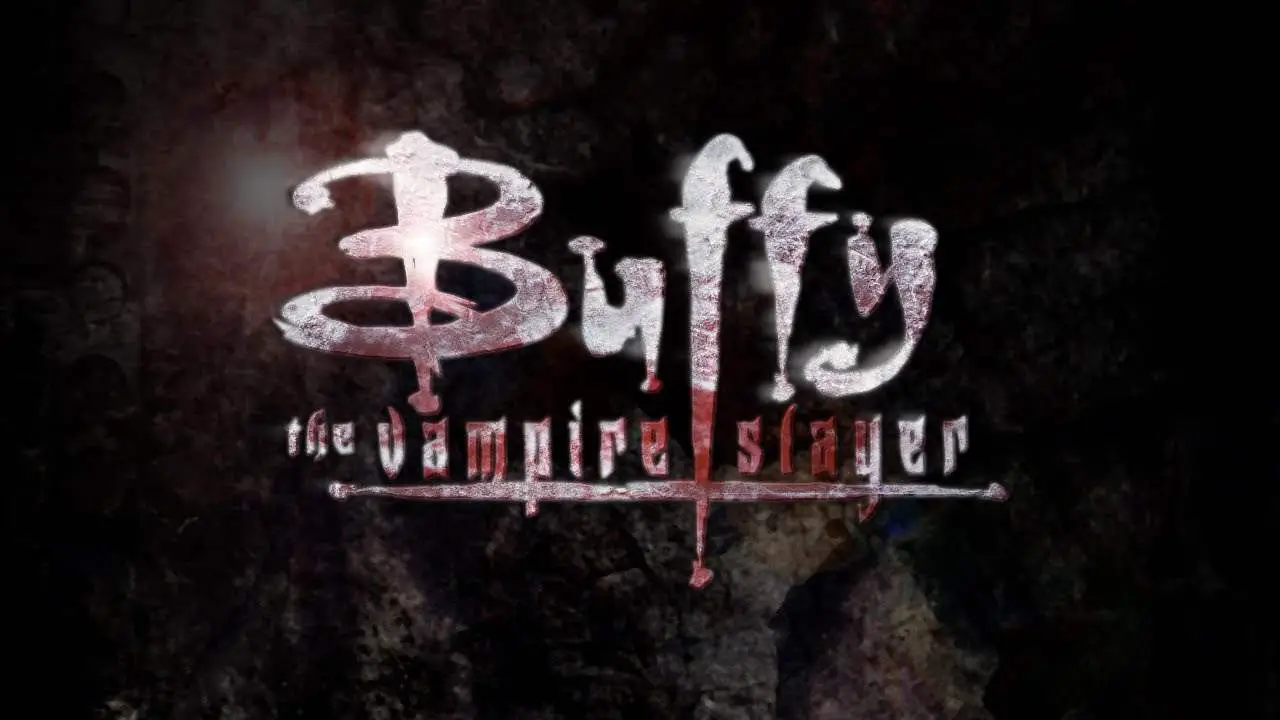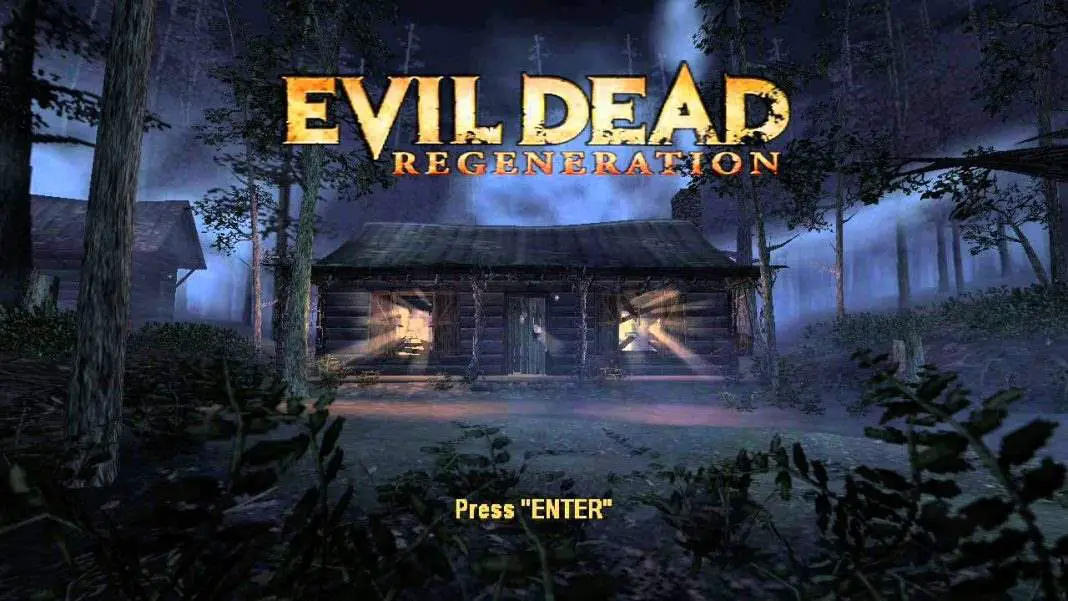Buffy the Vampire Slayer has an amazing, loyal rabid fanbase that has not faltered or declined even though the show has been off the air for thirteen years. Thanks to DVD and streaming services like Netflix, it only seems to grow in popularity from year to year. The movie it’s based on, however, has not seen the same kind of treatment.
That’s because most shows based on movies have a tendency to suck. We’re getting much better at it now as just about every film franchise has started rebooting for television, but that certainly wasn’t the case in 1997 when the Buffy TV series premiered. Because of that, everyone focuses on the show and forgets the feature, because the show is better.
But just because the series was better, that doesn’t mean the movie was bad. I think Buffy gets overshadowed for this reason more than any other. It doesn’t approach the deep emotional content that the show had seven years to richly develop, but it still has emotional content. It was not what creator Joss Whedon wanted it to be, exactly, but he understood that in only being screenwriter he only had so much control. Because of that lack of control, the mythology of vampires and the slayer in the film is almost completely different from that of the TV series.
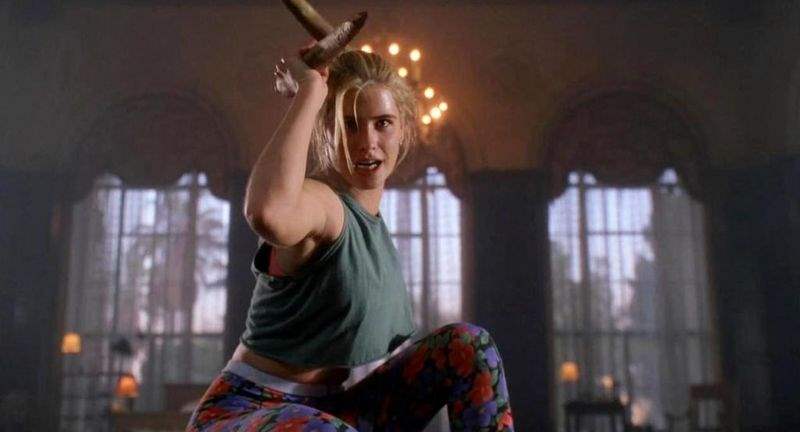
When we meet our heroine, Buffy, she feels very much like a proto-version of Cher in Clueless. She’s an over-the-top oblivious valley girl. But with that in mind, you’re already invested from the opening because you’ve seen the title. You know that this girl is, somehow, going to become a fearless vampire killer even though at the start she’s anything but. All good stories take their lead hero on some kind of journey, whether they’re genre stories or not. With the film, we get a really condensed version of what the Buffy story is all about. Here is a girl who has never given a thought to destiny or fate and finds both things suddenly thrust upon her.
Buffy is not a bad person, necessarily, she just isn’t a considerate one and she doesn’t have much of any focus on the world around her. All of her friends are exactly like her and it’s not even like Buffy is their leader, necessarily, it’s just that she fits in with them. And I think that’s key to the story and to Buffy’s progress as a character within the narrative. It’s not that Buffy doesn’t care that the forces of evil are amassing in Los Angeles, it’s not that she doesn’t want to help, but it’s so hard to find a place for yourself on the social ladder of high school and to find people you actually fit in with and when you have those things you’re understandably scared to give them up.
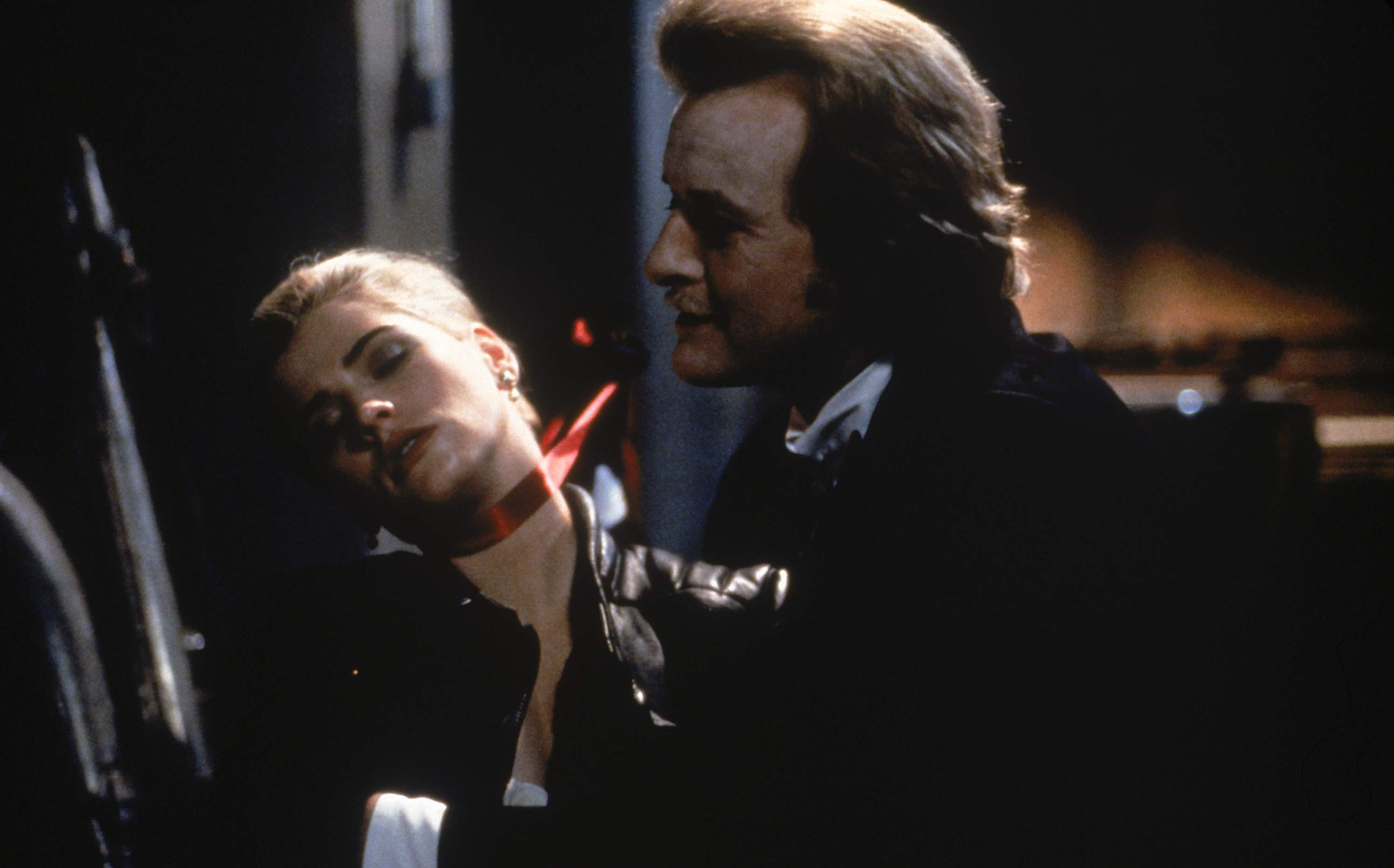 Even though it’s very different from the show, all of the core themes are clear. Buffy is a story about strength, in particular the inherent strength of women as a whole. That’s an important distinction, because Buffy isn’t really a story about one girl who’s stronger than all others, even though she’s the so-called Chosen One. The most important line comes toward the end when Pike tells her, “You know, Buffy, you’re not like other girls,” and she simply replies, “Yes, I am.” That’s so important and the film has to be commended for breaking to make that distinction.
Even though it’s very different from the show, all of the core themes are clear. Buffy is a story about strength, in particular the inherent strength of women as a whole. That’s an important distinction, because Buffy isn’t really a story about one girl who’s stronger than all others, even though she’s the so-called Chosen One. The most important line comes toward the end when Pike tells her, “You know, Buffy, you’re not like other girls,” and she simply replies, “Yes, I am.” That’s so important and the film has to be commended for breaking to make that distinction.
Further proving Whedon’s intended point, all of the high school guys that we meet are really sexist, including Buffy’s boyfriend. He basically refers to her as his property and she just goes along with it because she figures that’s the norm. The movie, maybe even more than the show, is really about a feminist awakening. It’s a point that the feature makes very clearly and one that progresses throughout the entire narrative.
At the beginning, Buffy accepts cat-calling, accepts the way her boyfriend and the rest of the basketball team talk to her, but as her powers come to light, she quickly progresses into standing up for herself and other girls as well. Becoming the slayer means losing all of her friends and she struggles with that, but certainly comes to accept it by the end of the film because she does not have anything in common with those people anymore.
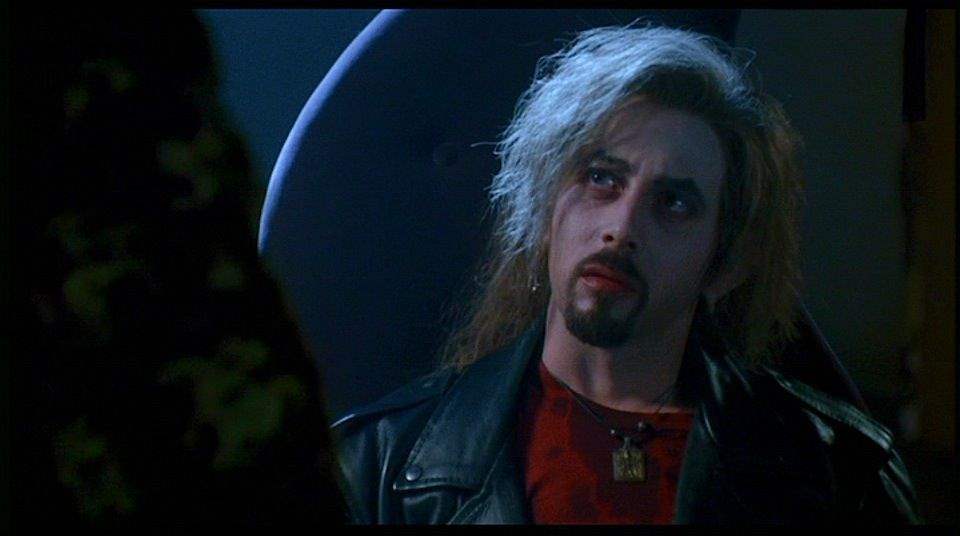 There’s not a weak link in the cast. Rutger Hauer is basically parodying himself and doing a wonderful job of it. Stephen Root shines in a small role as the principal. David Arquette is, well, pretty much just David Arquette as Pike’s best bud turned vampire. Whedon may have hated working with Donald Sutherland, but Sutherland certainly brings a needed stoicism to the role of Buffy’s Watcher, Merrick. Kristy Swanson is a really funny, sweet, sincere and kick-ass as Buffy. Even if she’s not Sarah Michelle Gellar, I’ll always rise to defend her portrayal here. Honestly, the cast of this flick is kind of amazing. Even Hilary Swank and Ben Affleck have minor roles. Future star of the TV show, Seth Green even had a small role as a vampire that was cut out.
There’s not a weak link in the cast. Rutger Hauer is basically parodying himself and doing a wonderful job of it. Stephen Root shines in a small role as the principal. David Arquette is, well, pretty much just David Arquette as Pike’s best bud turned vampire. Whedon may have hated working with Donald Sutherland, but Sutherland certainly brings a needed stoicism to the role of Buffy’s Watcher, Merrick. Kristy Swanson is a really funny, sweet, sincere and kick-ass as Buffy. Even if she’s not Sarah Michelle Gellar, I’ll always rise to defend her portrayal here. Honestly, the cast of this flick is kind of amazing. Even Hilary Swank and Ben Affleck have minor roles. Future star of the TV show, Seth Green even had a small role as a vampire that was cut out.
If there’s one actor, though, who could have seamlessly transitioned from the movie to the show, it’s Luke Perry as Pike. I don’t think anyone got exactly what Joss Whedon was trying to do like he did. From his suave but sensitive and kind of dopey performance to his understated line delivery, he honestly nails it. The character is an almost direct cross between Spike and Xander and is probably to this day the most healthy relationship Buffy has ever had.
If you’ve been told to avoid the Buffy movie, I’m telling you to unavoid it. A Watcher scoffs at bad publicity. It’s very different from the show, but that doesn’t mean there’s not a lot to love.
